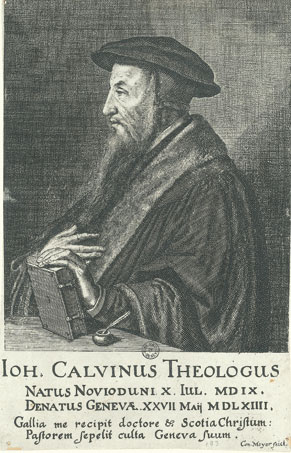Calvin reminds us that to break bread and drink wine and tell the story about which they bear witness, to embrace the refugee, to spend oneself for those who can offer nothing in return, to put the cause of the gospel before career and comfort, to do justice and to love mercy, is for the Church to participate in the prophetic action of the triune God, and in God’s love for the world. Calvin bequeathed to us a robust theological foundation and ministry example grounded upon the magnificent news that God is determined to self-disclose to us, and that in such a way that God might be ‘heard’ and received. But there is more, for to read Calvin is to be confronted with the possibility that creature’s might be made to be participants in the divine self-disclosure given in the sheer carnality of God, that Spirit and flesh are not so foreign to each other that their co-ministry might not be the means by which broken and hostile creatures are drawn into the knowledge and purlieus of the Father’s reconciling love.
There’s more, of course. Lot’s more … and it’s not all anywhere near as flattering (although this too is valueble). And, no doubt, there are countless other theologians who have borne witness, and are bearing witness, to the kinds of realities to which Calvin so eloquently directed our gaze. We should read these too.
Still, can anyone think of a better reason to read Calvin?


